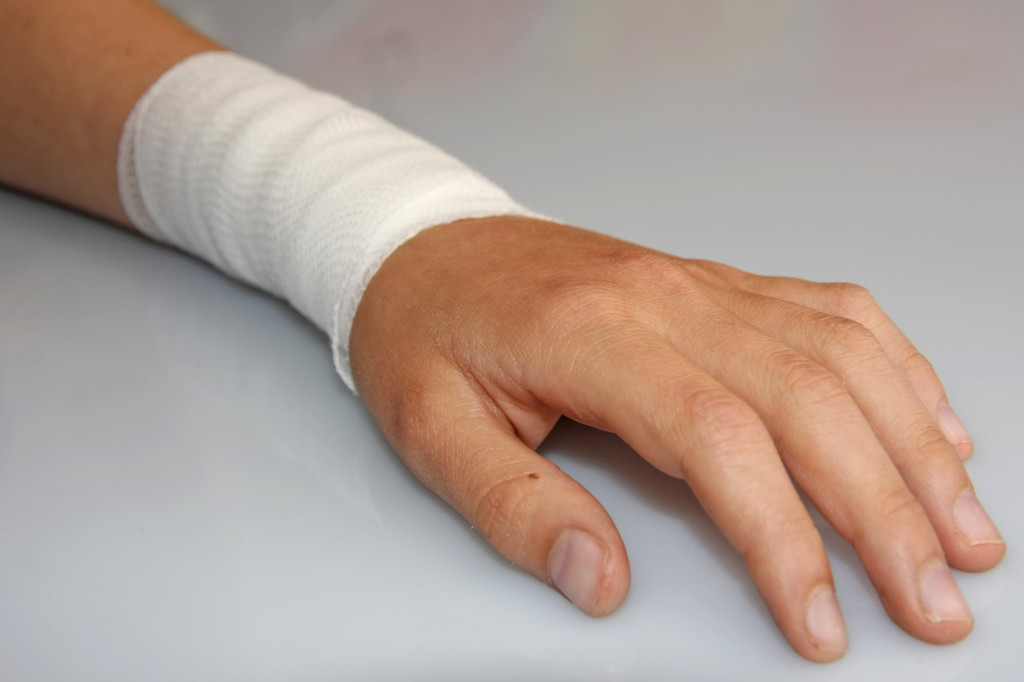- Wound healing involves inflammation, proliferation, and maturation stages, but different factors can delay the process.
- Slow wound healing can be due to poor nutrition, aging, chronic illnesses, infections, or certain medications.
- Consuming protein, vitamins A, C, and E, and zinc helps speed up the healing process of wounds.
- Applying medical adhesives, keeping wounds clean and moist, and consuming a healthy diet can aid in faster healing.
- Medical intervention is necessary if wounds persist, as healthcare professionals can identify and treat underlying causes.
Wounds are a common occurrence in people’s daily lives. Your body naturally heal wounds, whether it’s a cut, scrape, burn, or injury. However, not all wounds follow the same healing process, some may take longer than others. There are several reasons why a wound may take longer to heal than expected. Here’s what you need to know about your wound slowly healing, how it’s happening, and how to deal with it.
Why is Your Wound Slowly Healing?
Wounds happen when there is damage to the skin and underlying tissues. The severity of a wound depends on the type, size, depth, and location of the injury. Generally, wounds heal in three stages: inflammation, proliferation, and maturation. However, certain factors may delay or prevent this healing process from occurring.
Reasons For Flow Healing Wounds
There are various reasons why your wound is slowly healing. Here are some of them:

1. Poor Nutrition
The food you eat has a direct impact on your body’s ability to heal wounds. Your body requires protein, vitamins A, C, and E, and zinc for wound healing. Deficiencies in any of these nutrients can negatively affect the healing process. Maintaining a healthy and well-balanced diet is essential to speed up the healing process.
2. Age
The age factor also plays a role in the wound-healing process. Your skin becomes thinner, drier, and less elastic as you age, making it harder for wounds to heal. Additionally, your bodies produce fewer growth factors, vital proteins essential for wound healing. Hence, wounds in elderly people may take longer to heal than in younger individuals.
3. Chronic Illnesses
Individuals with chronic diseases like diabetes, obesity, and autoimmune diseases may experience slow wound healing. For example, diabetes can cause nerve damage, reducing blood flow to the wound site and impairing the immune response. This makes it harder for wounds to heal. These conditions can impair the body’s ability to produce new tissue and blood vessels, both essential for proper wound healing.
4. Infection
If a wound becomes infected, it can lead to slow wound healing. Infections introduce bacteria into the wound; if left untreated, it can cause inflammation and prevent proper healing. The presence of pus, redness, swelling, and severe pain are signs of an infected wound.
5. Medications
Certain medications can also slow down the wound-healing process. Medications like corticosteroids, chemotherapy drugs, and immunosuppressant drugs may hinder the body’s ability to heal wounds.
Ways to Help Speed Up the Healing Process
There are several things you can do to help your wound heal faster. Here are some tips:
Use Medical Adhesives
Medical adhesives can help promote faster healing if your wound is slowly healing. Medical adhesives like liquid bandages and skin closures are a barrier against bacteria, dirt, and water while supporting the wound’s edges. It’s good to contact local adhesives manufacturing solution companies to help supply your needs. You might get a discount by purchasing in bulk, saving you time and money in the long run.
Keep It Clean
Keeping your wound clean is crucial to prevent infections. Wash the area with mild soap and water daily, then apply an antibiotic ointment and cover with a sterile bandage. Change the bandage regularly or when it gets dirty or wet.

Eat Healthy Foods
Eating foods rich in protein, vitamins A, C, and E, and zinc can help speed up healing. Incorporate lean meats, fish, fruits, vegetables, and whole grains into your diet.
Keep It Moist
Contrary to popular belief, keeping a wound moist can help it heal faster. Dry wounds take longer to heal, creating scabs that prevent new tissues from forming. Use a moisturizer or petroleum jelly on the wound, then cover with a sterile bandage.
Seek Medical Attention
If your wound is still not healing after a few weeks, it’s best to seek medical attention. A healthcare professional can assess the wound and determine if underlying issues prevent proper healing. They may also prescribe medications or recommend other treatments to help speed up healing.
Wounds may take longer to heal for various reasons, but there are steps you can take to help promote faster healing. With proper care and nutrition, most wounds will eventually heal independently. However, seeking medical attention is important if your wound is not improving or becomes infected. Remember, prevention is always better than cure, so take precautions to avoid getting wounds in the first place.


